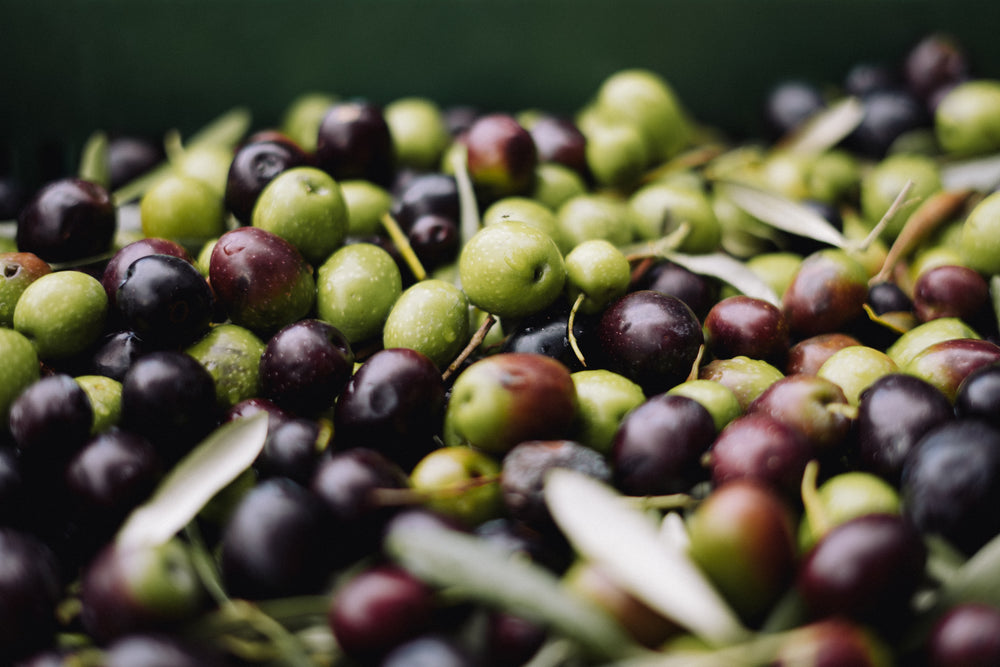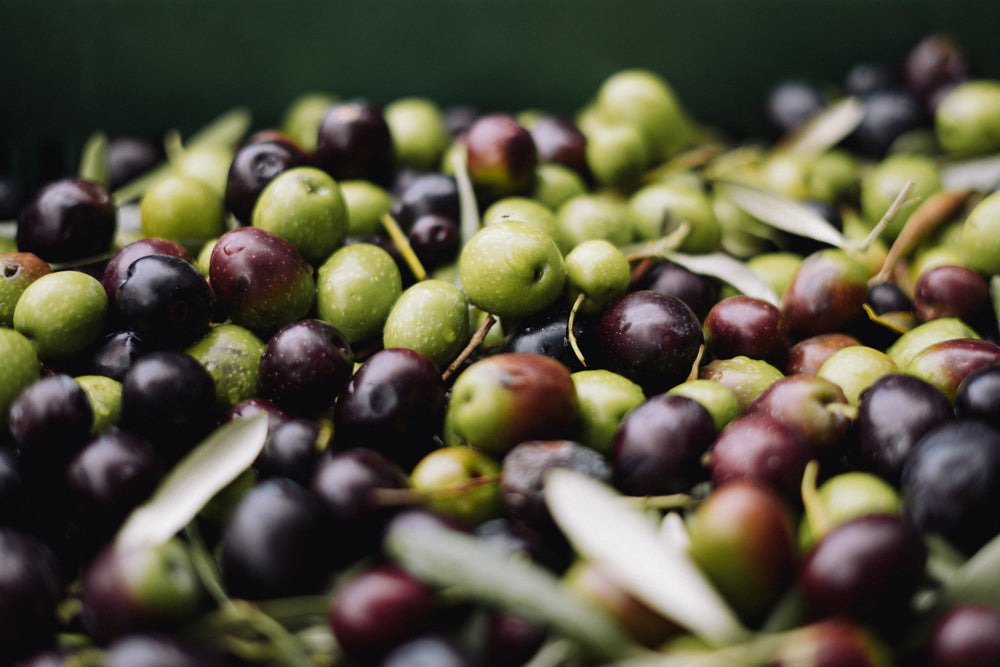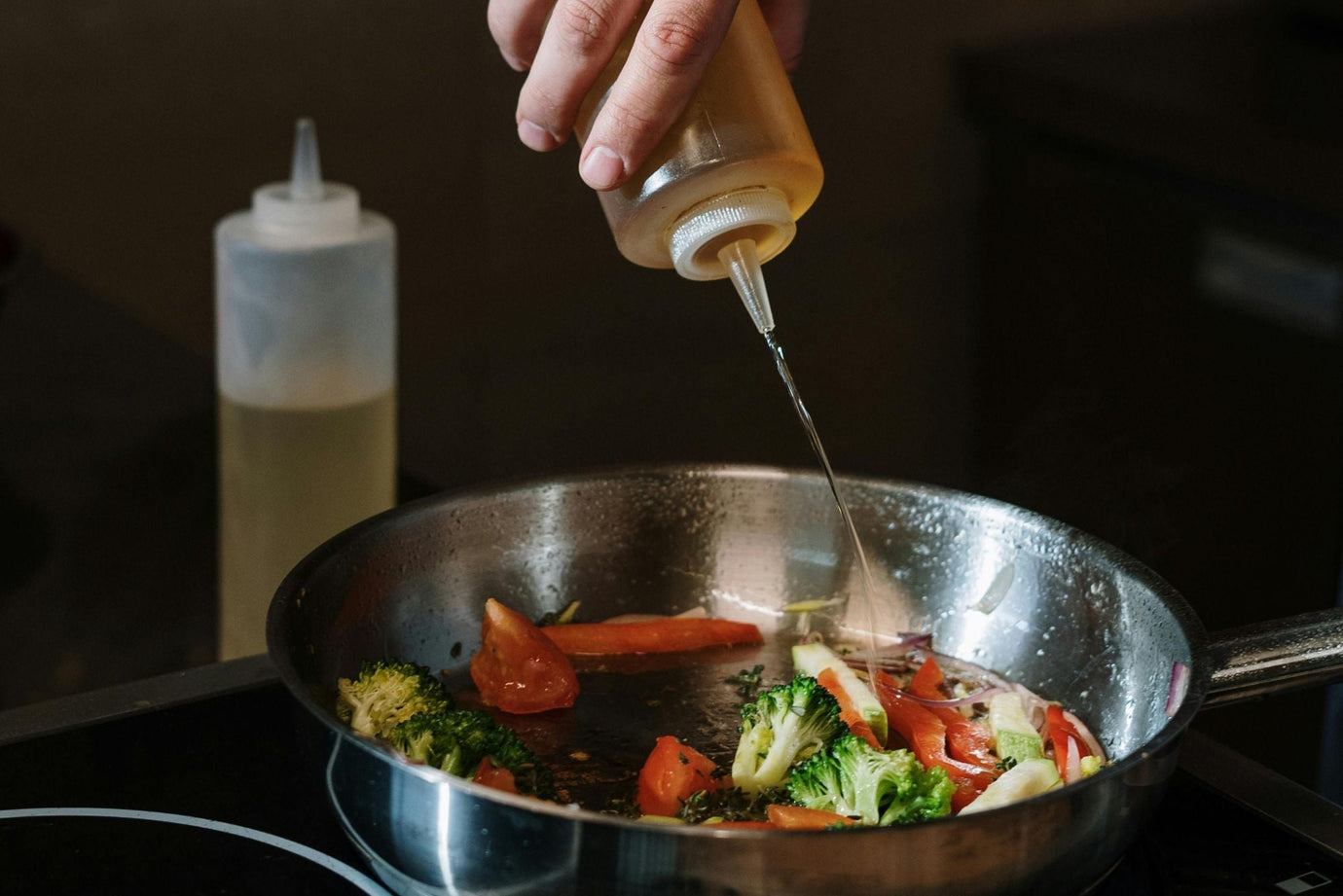Virgin and Extra Virgin Olive Oil: What's the Difference?
Among the various types of olive oils, virgin and extra virgin olive oil are especially prized for their high quality. Both are considered unrefined oils, which means they’re extracted using only mechanical methods—no heat or chemical solvents are used at all in order to preserve their natural properties!
The main difference between virgin and extra virgin olive oil is their free acidity level, which determines oil quality:
- Extra virgin olive oil (EVOO) is the highest quality olive oil with free acidity below 0.8%. It retains more of the natural compounds from olives, giving it a distinctive bitterness and peppery finish.
- Virgin olive oil, while still of high quality, has free acidity between 0.8 to 2.0%. It has a less intense taste compared to extra virgin olive oil.
Source: Trade Standard Applying To Olive Oils And Olive-Pomace Oils - International Olive Council
Though the difference in acidity may seem small, this slight variation greatly influences the olive oil's taste, smell, and health benefits.
Flavour Comparison: Extra Virgin vs. Virgin Olive Oil
Extra virgin olive oil packs the strongest flavour among all olive oil grades. You'll also notice a rich aroma emanating from the oil. EVOO is often described as having a fruity flavour with notes of pepper and bitterness, but the specific taste of each bottle varies depending on the types of olives used, date of harvest, and the region where it's from.
For instance, extra virgin olive oil from Italy tastes different from olive oil produced in Spain. The diversity of EVOO tastes and smells makes it ideal for raw uses like salad dressings and drizzling over finished dishes.
Virgin olive oil reflects these unique flavours too, but it has a milder taste and odour. It's more suitable for dishes where you want to bring in an olive flavour without overpowering the rest of the ingredients.
Virgin vs. Extra Virgin Olive Oil: Which is Healthier?
Extra virgin olive oil is the clear winner when it comes to health benefits. It contains a higher concentration of polyphenols and antioxidants that contribute to its anti-inflammatory properties.
It's good for your heart, too! Studies suggest that consuming extra virgin olive oil helps reduce the risk of cardiovascular diseases. While you may get similar benefits with virgin olive oil, it contains less of these nutrients than EVOO does.
How to Choose Between Virgin and Extra Virgin Olive Oil
- For raw applications like dips, salad dressings, or finishing oil: Opt for extra virgin olive oil to showcase its full flavour and aroma.
- For a heart-healthy and antioxidant-rich diet: We recommend sticking with extra virgin olive oil to ensure that you're getting the most health benefits.
- For cooking: You can use both virgin and extra virgin olive oil interchangeably for many dishes, but consider what's best for the recipe—do you need the strong flavour of EVOO, or is the subtle taste of virgin olive oil a better addition?
Frequently Asked Questions
Can You Substitute Virgin Olive Oil For Extra Virgin In Recipes?
Yes, virgin olive oil can be used as an alternative to extra virgin olive oil in most recipes. Take note that it has a milder taste and aroma, which might affect the final taste of the dish.
Can I Use Extra Virgin Olive Oil For Cooking?
Yes, you can use extra virgin olive oil for cooking and even deep-frying, but it’s best saved for low-heat and raw applications to preserve flavour and nutritional content. When cooking, always make sure to keep the temperature below the oil's smoke point of 410 °F (210 °C).
What Is Virgin Olive Oil Used For?
Virgin olive oil is suitable for a wide variety of cooking methods like sautéing, frying, and roasting. It’s mostly used in Mediterranean dishes and is also a popular choice for healthy recipes.









